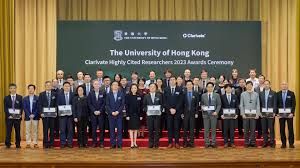Language Landscape: The Dominance of Mandarin
When discussing the languages spoken in Beijing, Mandarin is undeniably the star of the show. Officially known as Putonghua, which translates to "common speech," Mandarin serves as the lingua franca across China, and Beijing is no exception. According to the Beijing Municipal Bureau of Statistics, virtually all of the city's 21 million residents speak Mandarin. This language not only facilitates daily communication but also acts as a cohesive force in a city that magnetizes millions of domestic and international migrants.
The Influence of Dialects and Minority Languages
Despite Mandarin's dominance, Beijing's linguistic tapestry is more complex than it might first appear. The city's historical and cultural layers add richness to its linguistic landscape. For example, the Beijing dialect, a sub-branch of Mandarin, features prominently among the older population and in the city's traditional hutongs (narrow lanes). Characterized by its rhotic accent, this dialect preserves older forms and pronunciations that standard Mandarin does not.
Furthermore, as a melting pot, Beijing hosts a variety of minority languages. According to a survey by the Beijing Language and Culture University, languages such as Uyghur, Tibetan, and Mongolian are spoken within various communities. These languages are supported by cultural centers and schools that promote education and daily use among their communities, reflecting Beijing's ethnic diversity.

The Role of English in Beijing
English has a significant presence in Beijing, primarily due to its status as a global lingua franca and Beijing's role as an international hub. In educational institutions, from primary schools to universities, English is a compulsory subject. The city's ambition to engage globally is mirrored in its workforce, with a growing demand for English proficiency in business and tourism sectors. This trend is evident in the proliferation of English signs and menus in public spaces, aimed at accommodating international visitors and expatriates.
Cultural Reflection Through Language
Languages do more than facilitate communication; they reflect the values, history, and aspirations of a society. In Beijing, the preservation of local dialects alongside the promotion of Mandarin and the inclusion of English and minority languages demonstrate a balance between tradition and modernity, local identity, and global connectivity.
For anyone curious about what do they speak in Beijing, understanding this mix of Mandarin dominance, the preservation of traditional dialects, and the inclusion of global languages like English provides a comprehensive picture of the city's vibrant linguistic landscape. The continuous evolution of language in Beijing mirrors its dynamic role on the world stage, making it a fascinating subject of study for linguists and cultural enthusiasts alike.